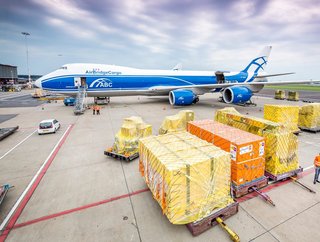Why more businesses are bringing procurement closer to home

Anirudh Munder, an Assistant Manager at The Smart Cube (a WNS company), explains to Procurement Magazine why nearshoring is a growing trend in procurement and supply chains. Anirudh specialises in chemical and industrial goods and works in strategic consulting and market research for the world’s biggest industrial and chemical companies, helping organisations with new market entry, procurement, and expansion strategy formulation.
Why businesses are considering nearshoring production
What has caused businesses to start localising their supply chains?
For decades, the majority of procurement and supply chain strategies followed one guidance: produce where the price is right, without incurring too much risk. This resulted in many organisations establishing highly cost-effective but extremely dispersed and complex supply chains.
However, in recent years, there has been a surge in organisations actively pursuing supply chain localisation and nearshoring – the practice of outsourcing supply chain services to businesses located in nearby or neighbouring countries. For instance, many companies located in Western Europe nearshore parts of their IT services to Hungary and Romania, while US-based Uber and IBEX have repositioned call centre operations to Costa Rica and Jamaica.
This nearshoring trend can be traced back to the onset of the COVID-19 pandemic. As countries around the world entered lockdowns, vital manufacturing components went undelivered, and goods were left unshipped. This brought significant disruption to global supply chains, with some even coming to a complete halt. To combat this, organisations started relocating their production sites, bringing manufacturing and sourcing significantly closer to where they operate.
Now we’re nearly four years removed from the start of the pandemic, what’s driving nearshoring?
Perhaps the most pertinent factor currently fuelling localisation are the geopolitical conflicts, wars, and unrest prevalent around the world. For instance, the ongoing Russia-Ukraine war has significantly disrupted the supply chains of a host of soft and hard commodities. This has prompted organisations – especially those in Europe – to localise their supply chains as they look to diversify their supplier portfolios and ensure that, should there be disruption in one region, they can obtain essential goods from elsewhere.
What’s more, there has also been a shift in the economics of trading. China has always been considered a key supply nation due to its favourable manufacturing costs and reliability. Although many businesses remain dependent on China, an ever-growing number are looking to alternative countries which provide lower-cost sourcing options. Coupled with some nations implementing tariffs on Chinese imported goods, this is pushing supply chain teams to relocate manufacturing and sourcing nearer to their base of operations.
As well as this, new environmental legislation has also encouraged nearshoring. As governments and regulators attempt to lessen carbon emissions, some have implemented new regulations which apply carbon levies to imported goods. For example, the EU has established the carbon border adjustment mechanism as part of its ongoing mission to become fully carbon neutral by 2050. Such legislation will significantly alter the economics of importing, negating much of the advantage gained from offshoring services.
Future outlook for nearshoring
Is this trend likely to continue?
According to Deloitte, 62 per cent of manufacturers in the US have already started nearshoring their production. This trend looks set to continue around the world, with an estimated 60 per cent of supply chain executives in Europe preparing to return elements of their Asia-based production to their home continent. As a result of this, demand for European factory space has risen by 29 per cent year-over-year.
As geopolitical conflicts, shifts in the economics of trading, and other factors which can significantly disrupt supply chains persist, businesses will continue nearshoring. In the event that possible disruptions arise, localisation allows organisations to maintain far greater control over their supply chains than if they were offshoring these services in a faraway destination.
How can organisations ensure nearshoring works for them?
By planning and implementing supply chain localisation well, businesses can significantly reduce supply chain risks, gain value, and bypass costly alterations. However, it is imperative to approach localisation with caution as it is undoubtedly a complex venture, representing a costly change in itself.
To ensure success, businesses need to have a long-term view in mind when exploring supply chain localisation. Nearshoring represents a long-term change in how organisations produce and source the goods they’re dependent on. This means companies cannot just make decisions that deliver immediate value – they must also consider how their supply chains will evolve moving forwards.
What’s more, it’s imperative for businesses to leverage timely market and supply chain intelligence prior to making any localisation decisions. These insights will enable organisations to make holistic, long-term nearshoring decisions that are best for the business, while also managing costs in the short term.
Nevertheless, the success of nearshoring and localisation strategies remains dependent on an organisation’s location, and which opportunities are accessible within its local sourcing landscape. If the business is in a remote location and has limited sourcing options in nearby countries, then nearshoring may not work for them.
*************************************************
For more insights into Procurement & Supply Chain - check out the latest edition of Procurement Magazine and be sure to follow us on LinkedIn & Twitter
Other magazines that may be of interest - Supply Chain Magazine | Sustainability Magazine
*********************************************
BizClik is a global provider of B2B digital media platforms that cover 'Executive Communities' for CEOs, CFOs, CMOs, Sustainability Leaders, Procurement & Supply Chain Leaders, Technology & AI Leaders, Cyber Leaders, FinTech & InsurTech Leaders as well as covering industries such as Manufacturing, Mining, Energy, EV, Construction, Healthcare + Food & Drink.
BizClik, based in London, Dubai & New York offers services such as Content Creation, Advertising & Sponsorship Solutions, Webinars & Events.






